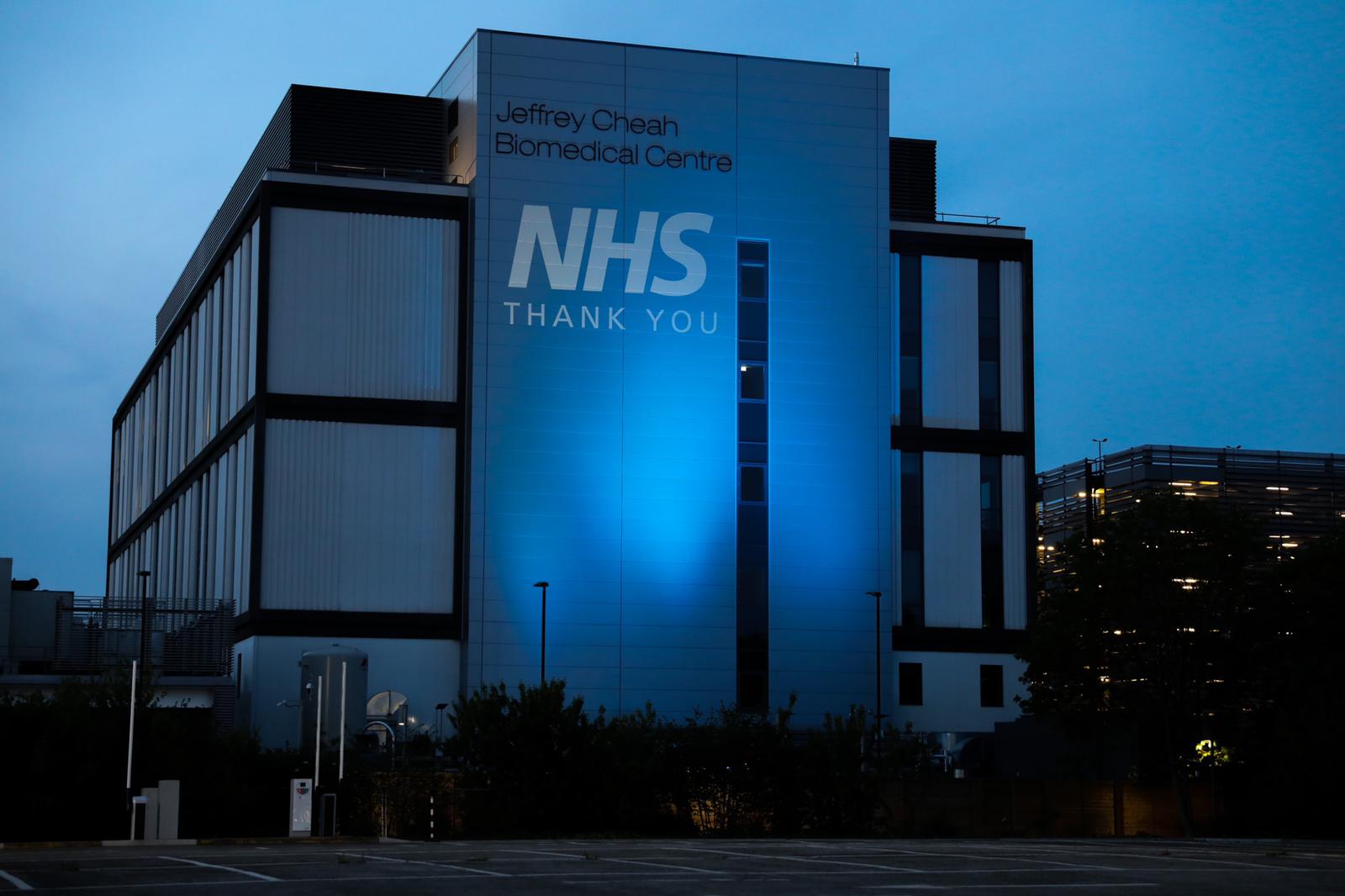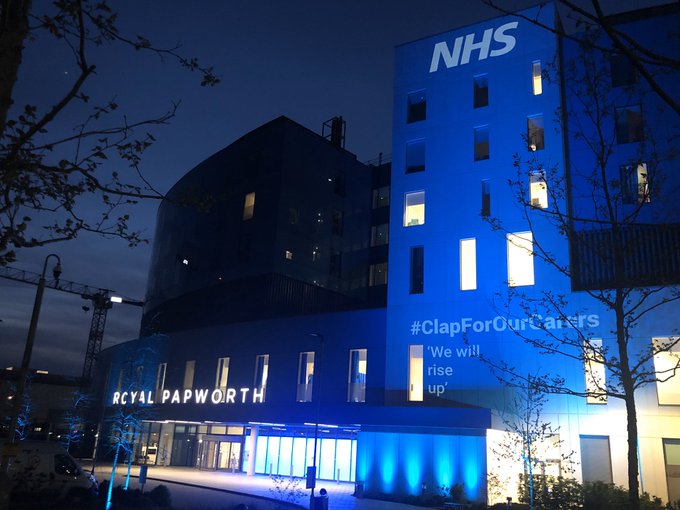
The JCBC building which houses the Milner Institute, the Wellcome-MRC Cambridge Stem Cell Institute and the Cambridge Institute of Therapeutic Immunology & Infectious Disease, is located on the Cambridge Biomedical Campus.
The Campus is also home to two world-leading NHS Trusts: Cambridge University Hospitals and Royal Papworth Hospital.
The JCBC building became a bright blue beacon against a clear dark sky last night during the weekly Thursday evening #clapforcarers tribute that millions across the country take part in.
Royal Papworth was also lit up blue and crews from Cambridgeshire Constabulary, Cambridgeshire Fire and Rescue and the East of England Ambulance Service assembled their vehicles in front of the hospital to represent how public services are working together during the coronavirus outbreak.
Milner Institute Director Tony Kouzarides, who also co-leads our Onco-Innovation Programme said: "On behalf of scientists in Cambridge and throughout the UK, we thank NHS staff for their selfless dedication during this pandemic."
The Cambridge Institute of Therapeutic Immunology & Infectious Disease, located in the JCBC, is leading the University of Cambridge’s response to the COVID-19 pandemic, with over 150 scientists and clinicians, the UK’s largest academic Containment Level 3 Facility, and a range of collaborators from across the UK and beyond.
They have recently developed a new test for COVID-19 which inactivates the virus at the point of sampling and is now being used to test and screen frontline NHS staff at Addenbrooke’s Hospital.
In addition to developing new testing methods, the team are establishing the COVID-19 BioResource, a collaboration with the NIHR BioResource.
This will involve state-of-the-art analysis of blood and other samples from consenting COVID-19 patients, helping the team understand how coronavirus infects us and causes disease and how our immune system fights back. It aims to allow researchers to predict which patients will do well or badly, and to help inform the development of new medicines to tackle the disease.
Useful links
Cambridge fighting COVID
















